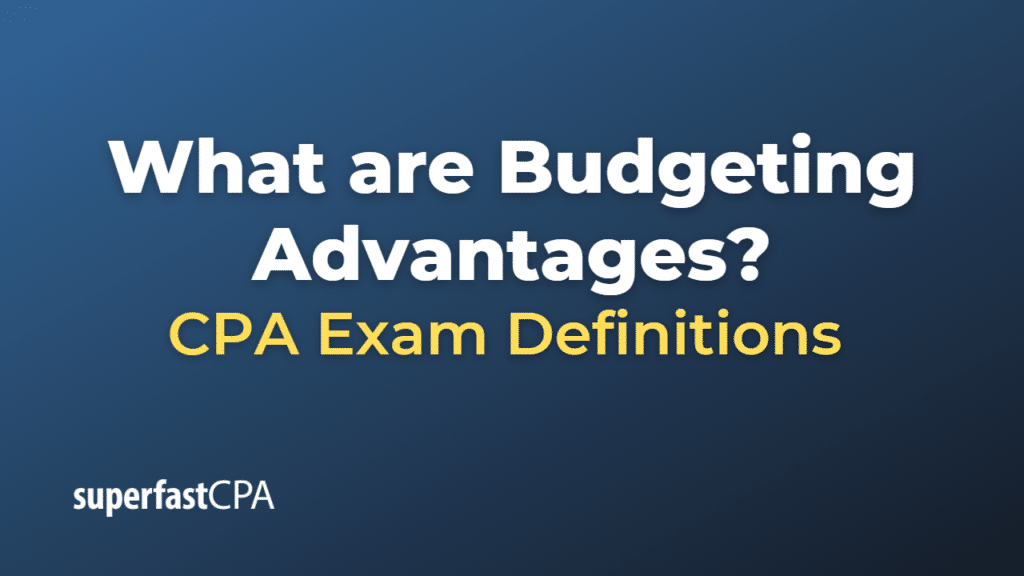Budgeting Advantages
Budgeting offers several advantages for businesses and individuals, including:
- Financial control: Budgeting helps in keeping track of income and expenses, which enables better control over financial resources. This control can help prevent overspending, reduce unnecessary costs, and maintain financial discipline.
- Planning: Budgeting helps in the planning process by setting financial goals, allocating resources efficiently, and determining the steps needed to achieve those goals. It also allows organizations to prioritize their activities and make informed decisions based on their financial capacity.
- Performance evaluation: A budget serves as a benchmark for evaluating actual performance against planned performance. By comparing actual results to the budget, management can identify deviations, determine the reasons for variances, and take corrective actions if needed.
- Improved decision-making: Budgeting provides a clear financial picture, enabling better decision-making. Management can analyze the potential financial impact of different scenarios and make informed decisions on investments, staffing, expansion, and other key aspects of the business.
- Coordination and communication: The budgeting process promotes coordination and communication among various departments within an organization. It encourages collaboration, as each department must work together to develop a comprehensive budget that aligns with the organization’s overall goals.
- Risk management: Budgeting helps identify potential financial risks and uncertainties, allowing businesses to implement strategies for mitigating those risks. This proactive approach can help organizations become more resilient and better prepared for unforeseen financial challenges.
- Increased savings and financial stability: For individuals, budgeting encourages saving money and reducing debt. By planning and tracking expenses, individuals can prioritize their spending, save for emergencies or long-term goals, and achieve greater financial stability.
Overall, budgeting plays a crucial role in managing finances, improving decision-making, and promoting financial stability for both businesses and individuals.
Example of Budgeting Advantages
Here is an example of budgeting for a small business:
Let’s say you own a small coffee shop, and you want to create a budget for the upcoming month. You start by estimating your income and expenses for the month. Based on historical data and trends, you estimate the following:
Projected Income:
- Coffee sales: $10,000
- Pastry sales: $4,000
- Merchandise sales: $1,000 Total Income: $15,000
Projected Expenses:
- Rent: $2,500
- Utilities: $500
- Employee wages: $5,000
- Coffee beans: $2,000
- Pastries: $1,000
- Merchandise inventory: $500
- Marketing: $500
- Miscellaneous: $300 Total Expenses: $12,300
Based on this budget, your projected net income for the month would be $2,700 ($15,000 income – $12,300 expenses).
Throughout the month, you would track your actual income and expenses, and compare them with the budgeted amounts. If any significant variances occur, you can analyze the reasons behind them and make necessary adjustments to your operations or future budgets.
At the end of the month, you may find that coffee sales were higher than expected at $12,000, while pastry sales were lower at $3,000. Your total income would be $16,000, and your actual net income would be $3,700. By comparing your budget to your actual performance, you can gain insights into your business’s strengths and weaknesses, allowing you to make informed decisions on pricing, inventory, marketing strategies, and other aspects of your business.
This budgeting process can be applied to both businesses and individuals, helping them plan, control, and evaluate their financial performance.













